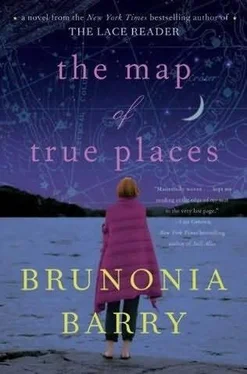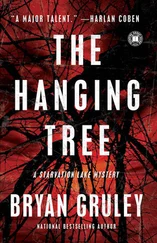“He’s well,” she told him. “What I mean to say, in other words, is he’s not worse. No falls, no new developments. He’s eating a lot of my cookies.”
The fact that Jessina considered the cookies a positive sign might have alarmed Melville even a few weeks ago. Now he was grateful that Finch had an appetite and wasn’t showing signs of depression at Zee’s absence.
“I’m doing what you would want me to do for our girl,” he said aloud. Lately he’d been talking to Finch as if he were here, hoping that whatever earthly rules and constraints we come to accept as normal no longer applied in whatever mental realm Finch now inhabited. It was clearly an act of faith, something new for Melville.
There were phone and text messages from Hawk and from Michael. He answered the ones from Mattei.
“How is she?” Mattei asked.
“It’s hard to tell,” Melville said. “She doesn’t want to talk.”
“I can understand that,” she said.
“I’m worried about her.”
Mattei considered. “She’s got a good head on her shoulders. She’ll talk to you when she’s ready.”
Melville’s sense of time seemed to be shifting. Summer was slipping into fall. September turned to October. The maple leaves were turning yellow and red.
When it was too cold to stay on the boat, Melville rented them adjoining rooms at an inn in town, a place that would allow pets. She took her duffel bag and he took his. Then he went back to the boat to get another load. He handed her some other items she’d brought along, some books, a jacket, and a mahogany case he didn’t remember seeing before.
“That’s not mine,” she said when he put it in her room.
“It’s not mine either,” he said.
He opened it up and saw the brass sextant.
“That belongs to Hawk,” she said. “How did you get it?”
“I don’t know. I thought you brought it.”
“I didn’t,” she said.
He handed her a paper, thinking it was a note.
“You read it,” she said.
He opened the paper and looked at it curiously. “It’s not a note,” he said. “It’s a chart of the constellations.”
“You didn’t know about this?” she said to him.
“I swear I didn’t,” he said. “I can put it in my room if it bothers you.”
“No,” she said. “Leave it.”
He closed the mahogany case and left it on her bureau.
THE NEXT TWO WEEKS WERE bad. The weather was gloomy, and they both missed being on the boat. At night he left the door open between their two rooms so he could wake her from her recurring nightmares. Bowditch planted himself in the doorway between them.
THE THIRD WEEK OF OCTOBER, the weather cleared and Zee went outside. She walked to town in the mornings. At night, if she couldn’t sleep, she would sometimes walk to the beach. He worried about it, and told her so.
“What could happen to me that hasn’t already happened?” she said.
He could think of a million things. Things he’d had in his mind since she was a kid, a parent’s worst nightmares. He offered to walk with her, but she wanted to be alone. Sometimes he would follow her to the beach, where he watched her looking up at the stars as if searching for something.
He was pretty sure she knew he was following her, but she never said so. A few times she looked back in his direction, but she didn’t acknowledge his presence, and he kept his distance, often planting himself on a nearby dune and looking up at the sky in an effort to see what it was she was looking at.
One cold night in mid-October, she stood up and brushed the sand from her jeans. Then she walked over to him and sat down.
“Did you find what you were looking for?”
“Some of it,” she said. She pointed up at the sky. “There’s Gemini,” she said. “There’s Cassiopeia. Virgo has completely disappeared.”
“Where has she gone?” he asked.
“South for the winter, I’d say.”
“Smart lady,” he said.
They walked back to the room together. Bowditch, who had been pacing and whimpering, met them at the door. When he saw her, he dragged himself over and leaned against her leg. She reached down to pat him. He collapsed at her feet and sighed.
ZEE AWAKENED JUST BEFORE dawn. Her nose was cold. She could hear the sound of the radiators creaking and groaning, coming on for the first time since spring. The smell brought back a sense memory of the house on Turner Street when she was little. Tears came to her eyes, but they didn’t fall. It wasn’t a sad memory, rather one of security, but she couldn’t place it. While Maureen was alive, maybe? But no, she’d been older than that. She stayed with it for a moment, hoping to pull it forward, but it dissipated like harbor fog. Still, she found herself grateful for that image and not the one of Roy she’d been waking to for the last month and a half, an image she’d had to work hard to push from her consciousness every morning.
From her bed she watched as the horizon line started to appear. A few stars were visible, but she couldn’t identify which ones. She wondered how many navigators were taking sights at this moment, jotting down notes, cross-referencing them as backup to the elaborate systems the ships carried now, ones that weren’t ever supposed to fail but sometimes did, leaving the navigator forever more to take sights every dawn and dusk until he reached his final destination.
She watched the stars along the horizon. Then, remembering something Hawk had told her, she opened the mahogany case and pulled out the sextant. She looked at the star chart. She didn’t have an almanac and wouldn’t really have known how to use it if she had, but she’d been looking at Virgo for so long now that she knew its path across the sky. She moved the bureau in front of the window and set the sextant on top of it, pointing it at the spot in the sky where Virgo should be if she were visible. Then she waited.
Spica’s rising was not as dramatic as the sunrise a few minutes later. It appeared on the horizon as a sparkling dot, stayed there for just a few minutes, before its light was consumed by the illumination of the rising sun. But for those few minutes, it was brighter in the sky than any other star on the horizon, and Zee knew without a doubt what it was she was seeing and how fortunate she was that today was clear and that she just happened to be awake and just happened to unpack the sextant and take a look. Spica would disappear now until next year, when Virgo would again be visible in the northern night sky, but she had seen it, found it for the first time, and for now that was enough.
She watched for a very long time, until the stars disappeared and the sunlight through the wavy glass of the window grew bright and strong. She wondered what time it was. In the doorway between the rooms, Bowditch snored loudly, the rhythm regular on the intake and the exhale, like an old clock or a slow and steady heart. Beyond him she could see Melville, still asleep, with just his blond hair sticking out above the covers. She stood in the window, letting the sun warm her.
There were already a few people on the street below. “It’s Wednesday,” she said aloud, surprised that she knew and surprised again that she hadn’t seemed to know what day it was for a long time.
She pulled on her jeans and Melville’s old sweater that he’d been letting her borrow, then took the back stairs to the street.
When had it turned from summer to fall?
There were pumpkins everywhere. She thought of Salem and Halloween, and she felt a twinge of homesickness. She stood in line at the coffee roasters, bought herself a macchiato, and took it to one of the outside tables. She looked on as the woman opened the bookstore and put a sandwich sign outside.
Читать дальше
Конец ознакомительного отрывка
Купить книгу












